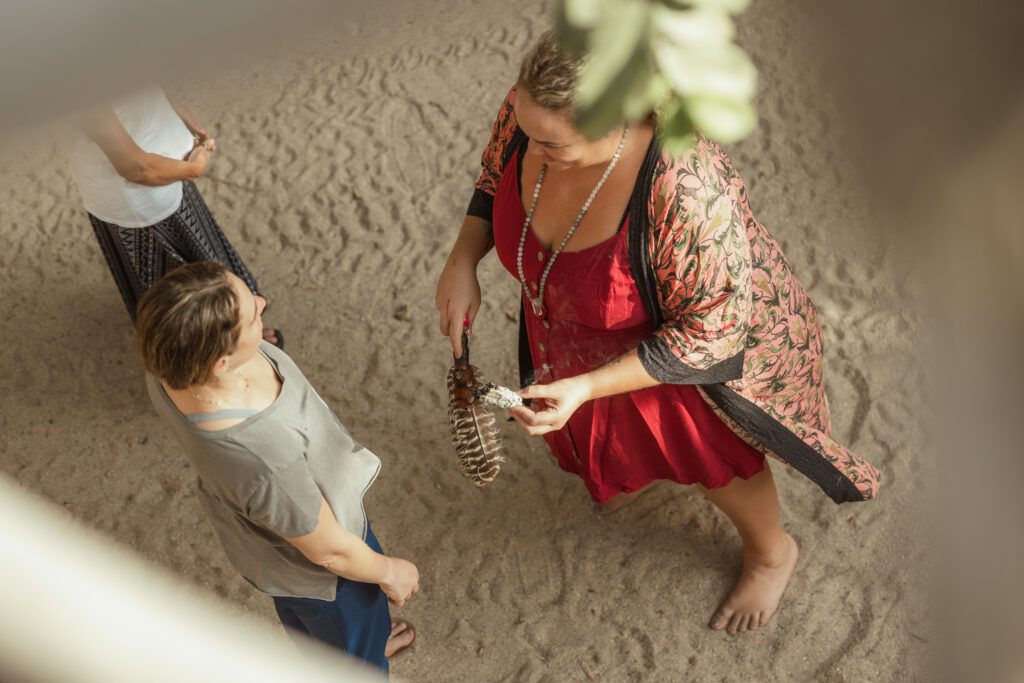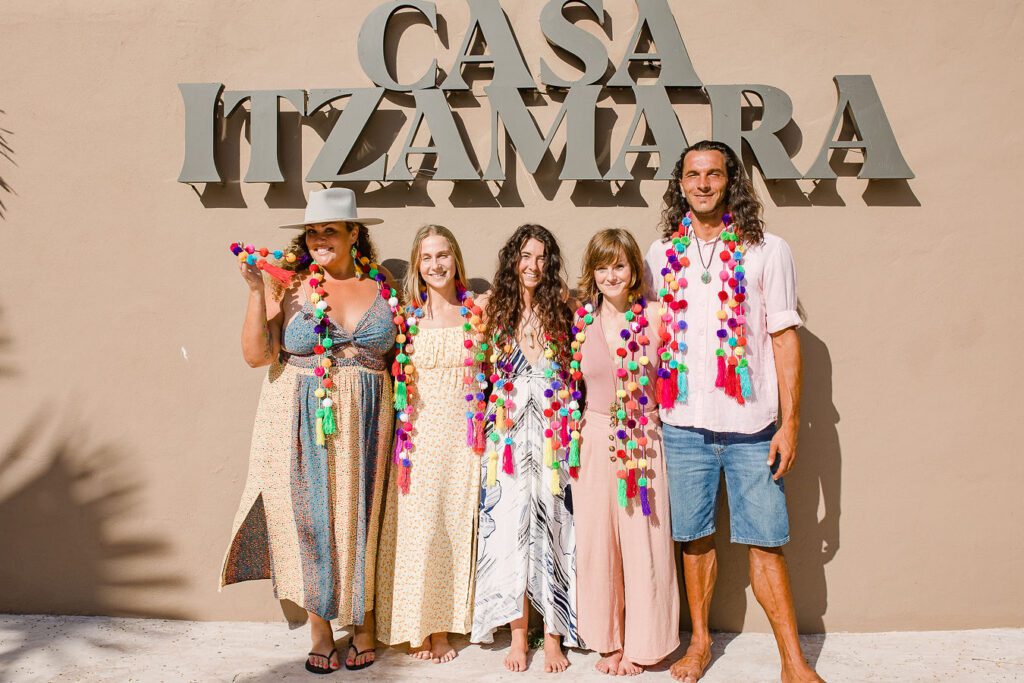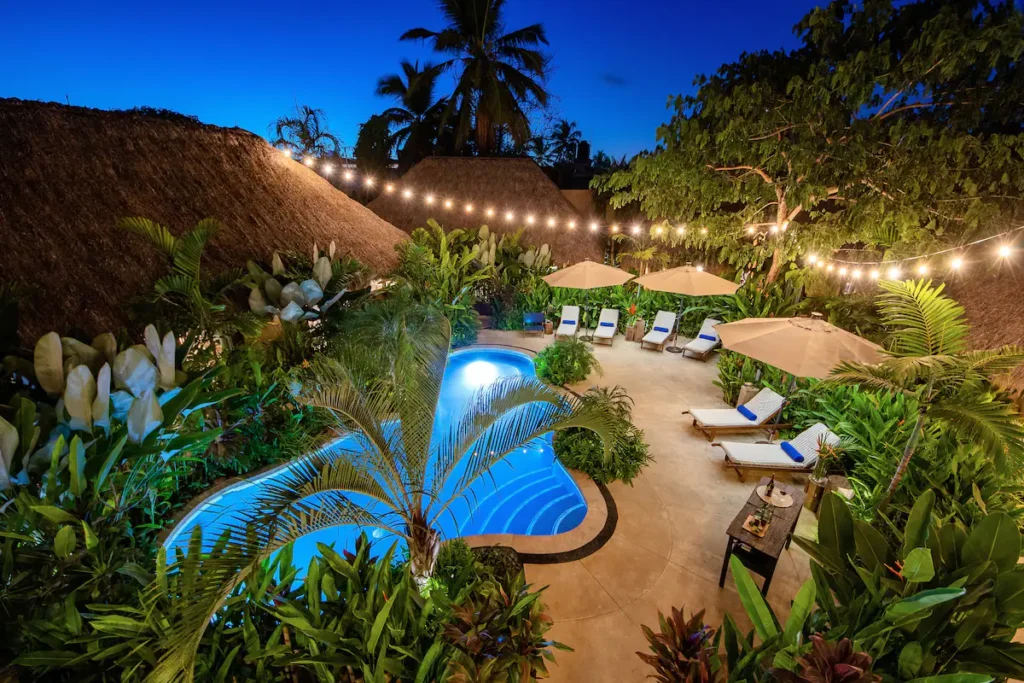For those asking where to get psilocybin therapy, legal options now exist in Oregon and Colorado, as well as at licensed retreats in Mexico, Costa Rica, Jamaica, and the Netherlands. These guided sessions support healing from depression, anxiety, PTSD, and more, all in safe, intentional settings.
Modern mental health care is in crisis.
Too many have walked the long road of medications and therapy, only to feel stuck in the same cycles. That’s why seekers are turning to psilocybin therapy, not as a last resort, but as a new beginning.
In this guide, we’ll break down exactly where legal psilocybin therapy is available, what conditions it can help with, who administers it, and how to choose a trustworthy provider.
Whether you’re navigating treatment-resistant depression or simply craving deeper self-connection, the answers, and options, are finally becoming clear.
Is Psilocybin Therapy Legal? (And Where Can You Get It?)

Yes, if you know where to look.
We’re standing at the edge of a psychedelic renaissance, but it’s not a free-for-all.
Legal psilocybin therapy is limited to specific locations, each with its own structure, regulations, and level of support. Whether you’re seeking a clinical model or a retreat setting, it’s essential to understand what’s actually legal, and what’s just good marketing.
Legal Access Points for Psilocybin Therapy
In the United States
Right now, Oregon and Colorado are the only U.S. states offering legal psilocybin services. Oregon operates under a state-regulated, licensed facilitator model. Colorado is building its own program, slowly rolling out community healing centers through Proposition 122.
International Retreats

Several countries legally allow psilocybin in retreat or ceremonial contexts. These are not medical models, but they can be profoundly healing when held with care and experience.
- Mexico – Home to retreats like The Buena Vida, where psilocybin is legal under indigenous and ceremonial use.
- Costa Rica – Known for holistic wellness and shamanic traditions.
- Jamaica – Fully legal, often offers tropical group retreats.
- The Netherlands – Psilocybin truffles are legal and widely used in retreat settings.
Another path is participating in a registered clinical trial. You can search databases like clinicaltrials.gov or use resources like Psychedelic Support to find trials happening in your area.
Common Misconceptions
A lot of people assume states like Florida or California offer legal psilocybin therapy. They don’t, yet. While some therapists may offer “psychedelic integration” support, the actual administration of psilocybin is illegal outside of Oregon and Colorado (or federally approved research settings).
Another surprise? In Oregon, a facilitator only needs a high school diploma, state certification, and to complete a training program. This isn’t necessarily a red flag, but it means the skill level across providers can vary dramatically.
What Conditions Can Psilocybin Therapy Help With?

If you’re feeling like you’ve tried everything, therapy, meds, self-help, meditation apps, and still aren’t seeing real, lasting change, you’re not alone. Many of the guests we’ve worked with arrive exactly where you are now: exhausted, skeptical, and deeply craving something different.
Psilocybin therapy is showing promising results for people struggling with some of the most persistent mental health challenges. And what makes it especially powerful is that it doesn’t just mask symptoms, it often goes straight to the root.
Clinically Supported Conditions Psilocybin May Help With
Researchers are finding that psilocybin can significantly reduce symptoms in a variety of mental health conditions:
- Treatment-resistant depression (Where other therapies and medications haven’t worked)
- Generalized and social anxiety
- PTSD and complex trauma
- Obsessive-compulsive disorder (OCD)
- Addiction (including alcohol, nicotine, and opioids)
- End-of-life anxiety in terminal illness patients
We’ve seen firsthand how this medicine can offer what many call an emotional “reset.” Not because it’s magic, but because it helps you connect with parts of yourself that have been hidden, buried, or numbed out for years.
How It Works: More Than Just a “Trip”
This isn’t about escaping reality. Psilocybin supports healing on a deep neurological and emotional level.
- Neuroplasticity Boost: Psilocybin temporarily enhances your brain’s ability to form new connections. Think of it as loosening the grip of rigid thought patterns, self-doubt, or trauma loops.
- Default Mode Network Disruption: This is the part of the brain tied to rumination and ego. Psilocybin softens it, allowing you to explore different ways of thinking and feeling, without the inner critic running the show.
- Emotional Access: Many guests describe being able to finally feel feelings they’ve suppressed for years, grief, joy, forgiveness, clarity. This emotional movement is where real transformation begins.
Real People, Real Healing
We’ve guided over 1,000 guests through this work, and the themes are often the same:
- “I feel like myself for the first time in years.”
- “I finally understand the source of my depression.”
- “It’s not that I don’t feel pain anymore, it just doesn’t own me.”
These aren’t flukes. They’re the result of a safe, supported environment paired with intentional psychedelic medicine work.
Who Administers Psilocybin Therapy (and What Are Their Qualifications)?
One of the most common questions we get is: Who’s actually giving me the medicine? Is this something a doctor prescribes, or is it more like a guide?
The answer isn’t so simple, and it really depends on where you go and what kind of experience you’re seeking.
Facilitator or Therapist? It Depends on the Model
In clinical settings or research trials, you might find licensed therapists, psychiatrists, or psychologists administering psilocybin. These environments tend to be more structured, with a strong emphasis on medical screening, diagnostics, and Western therapeutic frameworks.
At retreat centers like ours, facilitators may come from a variety of backgrounds, licensed therapists, trauma-informed coaches, ceremonialists, or deeply experienced plant medicine practitioners. What matters most is not just credentials, but how safe, attuned, and emotionally grounded your facilitator is.
Choosing What’s Right for You
You don’t need someone with a PhD to have a powerful healing experience, but you do need someone who can hold space when things get deep, tender, or raw. That’s the core of this work.
When you’re choosing a guide, consider:
- Their relationship to the medicine , Do they have personal experience? Are they still students of the work?
- Their training background , Are they trauma-informed? Do they have therapeutic or ceremonial training?
- Their integration support , Do they help you prepare and process, or just facilitate the trip?
- Your comfort level , Do you feel emotionally safe and seen? Could you be vulnerable in their presence?
Clinical or Spiritual? Why Not Both?
Some people gravitate toward clinical settings, think sterile, structured, research-backed. Others feel called to more spiritual containers, where intention, ritual, and energy matter just as much as science.
And then there are spaces, like The Buena Vida, that aim to blend both: the soul of ceremony with the grounding of psychology.
There’s no one-size-fits-all. You don’t need to choose a therapist over a shaman or vice versa. You need to choose the guide that feels right for you.
What to Expect from a Psilocybin Therapy Session
One of the biggest unknowns for people considering psilocybin therapy is, “What actually happens during a session?”
While no two experiences are ever the same, the container, how your session is held, can make or break your journey. This is where intention, preparation, and trust come in.
What the Session Actually Looks Like at The Buena Vida
Every psilocybin ceremony begins long before the medicine touches your lips. It begins with the space itself, crafted intentionally to hold your journey with care, reverence, and deep energetic presence.
We don’t just set the mood, we open a sacred container.
The ceremony space is prepared with devotion:
- Altars are built with flowers, candles, meaningful objects, and symbols of transformation.
- Copal smoke is used to cleanse the air and invite in ancestral guidance.
- Crystals are placed with focused intention to anchor energy and support grounding.
- Prayers are spoken aloud, calling in protection, clarity, and the unseen support you need.
Once the container is created, we begin the deeper descent. Every practice is chosen to help you soften, open, and surrender to the intelligence of the medicine.
- Breathwork calms the nervous system and opens the emotional body.
- Drumming and chanting help you move beyond the thinking mind and into rhythmic awareness.
- Live medicina songs and icaros are sung throughout the journey, not as performances, but as guides.
- Silence is just as sacred. At times, we let the mushrooms and your own inner knowing lead the way.
- Guided visualizations may be used at the beginning to help you ground, set intention, or connect with a trusted inner resource.
This is more than a session. It’s a ceremony. A living, breathing experience where every element, from sound to scent to stillness, is part of the healing.
Set and Setting: Your Inner and Outer Environment Matter

“Set” refers to your mindset going into the session, your intentions, emotions, and expectations. “Setting” is the physical and energetic space where the journey happens.
At The Buena Vida, we take set and setting seriously. We create an environment that feels calm, beautiful, and safe, down to the blankets, lighting, and music. Because when your nervous system feels held, your soul can actually let go.
The Facilitator’s Role: Presence Over Prescription
Your guide isn’t there to fix you. They’re there to witness, support, and gently redirect if needed. Sometimes that looks like helping you breathe through fear. Other times, it’s just knowing when not to say anything at all.
And yes, we always work in pairs. Because vulnerability takes courage, and no one should feel alone in their process.
If you’re considering a center that only offers one facilitator per person, ask questions. What happens if something gets intense? Who steps in if support is needed? Two people, fully present, creates a net you can actually fall into.
Integration: Where the Real Healing Happens
Here’s the secret: the session is just the beginning. The insights, emotional releases, and breakthroughs you experience need to be integrated into your daily life to truly stick.
That’s why we offer:
- Pre-retreat preparation calls
- Post-retreat group integration circles
- Ongoing support resources for journaling, embodiment, and lifestyle shifts
It’s not about having a “good trip.” It’s about how that trip helps you live more fully, honestly, and intentionally when you return home.
Is Psilocybin Addictive or Dangerous?
Let’s get this out of the way first: psilocybin is not addictive.
It doesn’t create physical dependence, and it doesn’t activate the reward loops in the brain the way substances like opioids, alcohol, or even caffeine can.
In fact, many of our guests are surprised to learn that the body naturally builds a short-term tolerance to psilocybin, meaning you can’t just keep taking more and chasing a high. That’s not how this medicine works.
But Safe Doesn’t Mean Casual
Just because it isn’t addictive doesn’t mean it’s risk-free. Like any powerful tool, psilocybin requires respect.
Certain mental health conditions, especially bipolar disorder, schizophrenia, or untreated psychosis, can increase the risk of adverse reactions. That’s why thorough screening is non-negotiable at any ethical retreat or clinic.
Medication Matters
If you’re currently on SSRIs or benzodiazepines, know this: these meds often blunt or block the effects of psilocybin. It’s not dangerous in the way mixing substances might be, but it can reduce the therapeutic potential.
We’ve worked with guests who’ve spent weeks tapering off their meds (under the supervision of their doctors) before retreat. And while it’s not required, we’re honest: those who come off SSRIs typically report deeper emotional access and stronger breakthroughs.
Here’s What Makes Psilocybin Safer
When used in a well-held space, psilocybin therapy is profoundly safe. The key? Intention. Supervision. Emotional support. Not all containers are created equal.
Look for providers who offer:
- Comprehensive screening for mental health history and medications
- Trauma-informed facilitation and safety protocols
- Emergency plans and dual facilitation (never just one person watching over a group)
- Ongoing integration support after your session or retreat
- Honesty about contraindications, no pushing, no “just try it and see”
How to Choose a Legal and Trustworthy Psilocybin Therapy Provider
Let’s be honest, there are a lot of people out there calling themselves “healers” or “facilitators.” And in a space that’s expanding this quickly, not all of them are operating with integrity, safety, or experience.
Choosing who to journey with is one of the most important decisions you’ll make. This is sacred work. You deserve a provider who treats it that way.
What to Look for in a Psilocybin Provider
Here’s what we recommend when evaluating a legal retreat, facilitator, or therapy clinic:
- Licensed or certified facilitators: In Oregon or Colorado, they should be trained under the state’s legal framework. Internationally, look for programs with vetted training or a strong community reputation.
- Preparation and integration support: Healing doesn’t start or stop with the ceremony. Make sure they offer prep calls, post-retreat integration, and real guidance, not just “have a nice trip!”
- Emotional safety protocols: Ask how they handle someone having a hard time. Do they offer dual facilitation? Do they have grounding tools, trauma-awareness, and experience with big emotional releases?
- Medical screening: They should ask about your mental health history, medications, and physical health, before you ever arrive.
- Testimonials or word-of-mouth: Real stories. Real people. Ask for reviews, talk to past participants if possible, and trust your gut. If something feels off, it probably is.
Red Flags to Watch For
These are signs that the provider may not be holding the work with the care it deserves:
- No prep or integration support
- Only one person running the entire retreat (no co-facilitator or support staff)
- Vague or evasive about legality or location
- Pushy sales tactics or promising guaranteed “miracles”
Most places offer free consultation calls, book a few and go with your gut.
Ask questions. Feel the energy. If you don’t feel safe in that first call, you won’t feel safe during the ceremony.
This is your healing we’re talking about. There’s no room for shortcuts.
What Other Psychedelics Are Legally Used in Therapy?
Psilocybin might be getting the spotlight right now, but it’s not the only psychedelic making waves in the world of healing. If you’re wondering whether other substances are legally used in therapy, the answer is yes. And the list is growing.
Each medicine has its own personality, purpose, and legal path. Knowing the difference can help you find the right tool for your healing journey.
Other Psychedelics in Therapeutic Use
Let’s break down what’s currently available, and what’s on the horizon:
Ketamine
- Legal status: FDA-approved for depression
- How it’s used: In clinics, often with IV, IM, or lozenge administration
- Best for: Depression, PTSD, chronic pain, suicidal ideation
- Vibe: More clinical and dissociative; shorter duration
MDMA (Coming Soon)
- Legal status: Not yet approved, but expected in the next year for PTSD
- How it’s used: Combined with therapy in a structured setting
- Best for: Complex trauma, PTSD, emotional processing
- Vibe: Heart-opening, relational, powerful for trauma survivors
Ayahuasca
- Legal status: Legal in some South American countries and religious settings
- How it’s used: Ceremonial context, guided by shamans
- Best for: Trauma, spiritual crisis, identity, ancestral healing
- Vibe: Deeply purgative, visionary, not for the faint of heart
Ibogaine
- Legal status: Decriminalized in some countries, but often poorly regulated and retreats operate in legal grey areas
- How it’s used: Often in addiction treatment clinics
- Best for: Opiate detox, addiction recovery
- Vibe: Intense, introspective, physically demanding
How to Choose the Right Path
Each medicine meets you in a different place. It’s not about which one is “better”, it’s about which one is right for you.
Ask yourself:
- What am I seeking to heal?
- Do I want a clinical container or a ceremonial one?
- Am I looking for insight, relief, spiritual connection, or all of the above?
If you’re new to this work, psilocybin is often a gentle (but powerful) entry point. It offers clarity without the intense purging of ayahuasca or the clinical detachment of ketamine. It meets you where you are, and then helps you go deeper, safely.
Your Psilocybin Therapy Journey Starts with Safety and Intention

Psilocybin therapy is no longer a fringe idea, it’s a grounded, research-backed option for those seeking deep emotional healing and transformation.
We’ve explored where you can legally receive psilocybin, what conditions it can help with, who facilitates these journeys, and how to choose a provider who prioritizes your safety and growth.
The most important takeaway? This work is not about the mushroom alone, it’s about the intention you carry, the support you receive, and the integration you commit to afterward.
At The Buena Vida, we hold all of that sacred.
If you’re feeling the call, don’t walk this path alone. Let us help you explore what’s possible, with reverence, clarity, and care.
Take our quiz or apply for a free consultation to explore your options. Your journey doesn’t start with mushrooms, it starts with a conversation.


